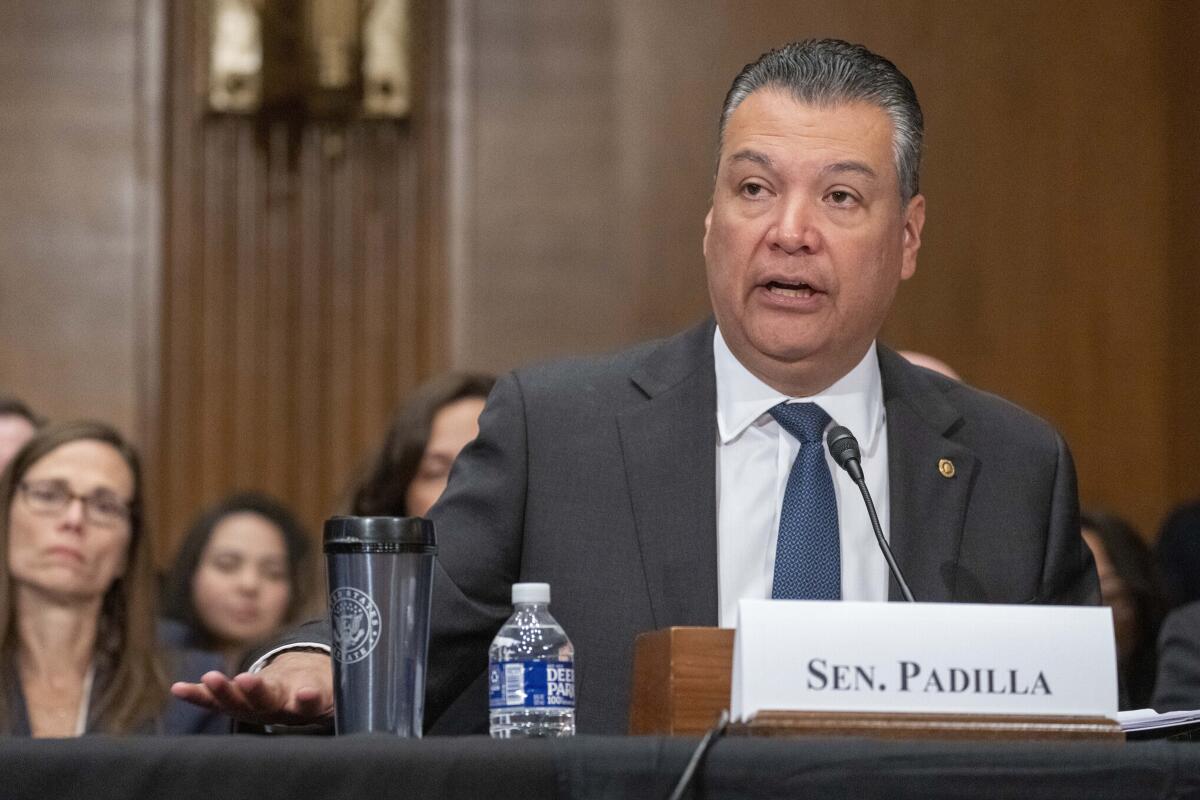For L.A. transplants, mobile crisis teams may be out of reach

- Share via
Say you’re a Detroit transplant living in Los Angeles, and your house has just gone up in flames.
Like many newer Angelenos, you never bothered to ditch your old area code. But when you dial 911 from your cellphone, your call will go to dispatchers in Los Angeles. It will not, thankfully, go to Detroit.
The same cannot be said of 988, the national mental health crisis hotline. Callers grappling with suicidal thoughts or a substance-use crisis will find themselves directed to a call center based on their area code.
For some callers, this won’t matter. A trained counselor sitting in a call room in Detroit could very well offer the same words of comfort and assistance as one based in Los Angeles.
Except, in Los Angeles County, the professionals do more than talk. They can also help connect the caller with a team of mental health professionals who can meet them in person.
Suicide prevention and crisis counseling resources
If you or someone you know is struggling with suicidal thoughts, seek help from a professional and call 9-8-8. The United States’ first nationwide three-digit mental health crisis hotline 988 will connect callers with trained mental health counselors. Text “HOME” to 741741 in the U.S. and Canada to reach the Crisis Text Line.
As long as you’re calling from a phone number with a local area code, that is. Otherwise, you’re probably out of luck.
For this reason, staff members say Los Angeles County’s Mental Health Department has held off on fully promoting its 988 line, worried a significant number of Angelenos won’t be able to access county services. Caller data suggest roughly 15% of county residents who would call 988 will get routed elsewhere because of their area codes.
County officials say it’s a wonky problem with an obvious fix: Get the federal government to pass a law that would require the Federal Communications Commission to route calls based on the closest call center rather than the area code.
On Tuesday, county supervisors voted to send a letter supporting legislation introduced last month by Sens. Alex Padilla (D-Calif.) and Thom Tillis (R-N.C.) that would force the FCC to route the calls to the nearest call center.
“We did all this work — and then we went, wait a minute,” said Supervisor Janice Hahn, who said she advocated for a legislative fix while in meetings in Washington, D.C. “They could be in a real mental health crisis [or] breakdown, and the call goes to Minneapolis.”
Technically, an out-of-town call center could transfer the caller to L.A. County. But local officials believe many call centers wouldn’t think to do that as they wouldn’t be aware of the in-person services the county offers. When calls are transferred, advocates say, precious minutes are wasted.
Hahn said the letter was meant to send a signal to the county’s legislative team in Washington that it should start “walking the halls of Congress” to lobby for a federal fix, which was particularly urgent in a region of transplants.
Padilla said he believed the bill to fix this would pass easily with bipartisan support.
“It’s a no-brainer,” he said.
L.A. County rolled out the 988 Suicide and Crisis Lifeline in the summer of 2022. At the time, local politicians framed the three-digit number as a way to help callers in crisis avoid a police response and a potentially deadly confrontation. Instead, callers would be connected to a professional who could talk them through their mental health crisis and help them get in-person assistance when necessary.
The county currently has 47 full-time teams, who, as of December, are dispatched 24/7, according to a spokesperson for the Department of Mental Health. The teams go out on 1,200 to 1,500 calls a month, the spokesperson said.
A Times investigation in April found the rollout has been bumpy with politicians failing to deliver on many of their early promises about what 988 could do for constituents in crisis. Wait times soared with mobile teams usually taking more than an hour to respond. Roughly half the time, teams took more than five hours to respond.
Get the lowdown on L.A. politics
Sign up for our L.A. City Hall newsletter to get weekly insights, scoops and analysis.
You may occasionally receive promotional content from the Los Angeles Times.
Nine months later, Traute Winters, executive director of L.A. County’s chapter of the National Alliance on Mental Illness, said she’s no longer hearing as much about long wait times. Instead, she said, the issue of misrouted calls has become one of the top problems.
“I’m pleased with how it’s progressing,” she said of the hotline. “But it’s still a work in progress.”
Winters said the issue extends beyond newer Angelenos being unable to reach the county’s hotline workers. Former L.A. residents who have since left the region are also sometimes stuck with a call center that can’t fully help them.
Rachel Stankus, a shift supervisor who takes 988 calls that get routed to L.A. County, said she once had an out-of-town caller who’d appeared to be overdosing and was poised to ingest more prescription pills. His Los Angeles area code meant he was her responsibility — even though she had no idea where he was calling from.
“We lost valuable time trying to determine his location,” she said. “Every moment counts when a caller is in crisis.”
Dialing 988 will route callers to the National Suicide Prevention Lifeline, accessible across the U.S.
More to Read
Sign up for Essential California
The most important California stories and recommendations in your inbox every morning.
You may occasionally receive promotional content from the Los Angeles Times.














